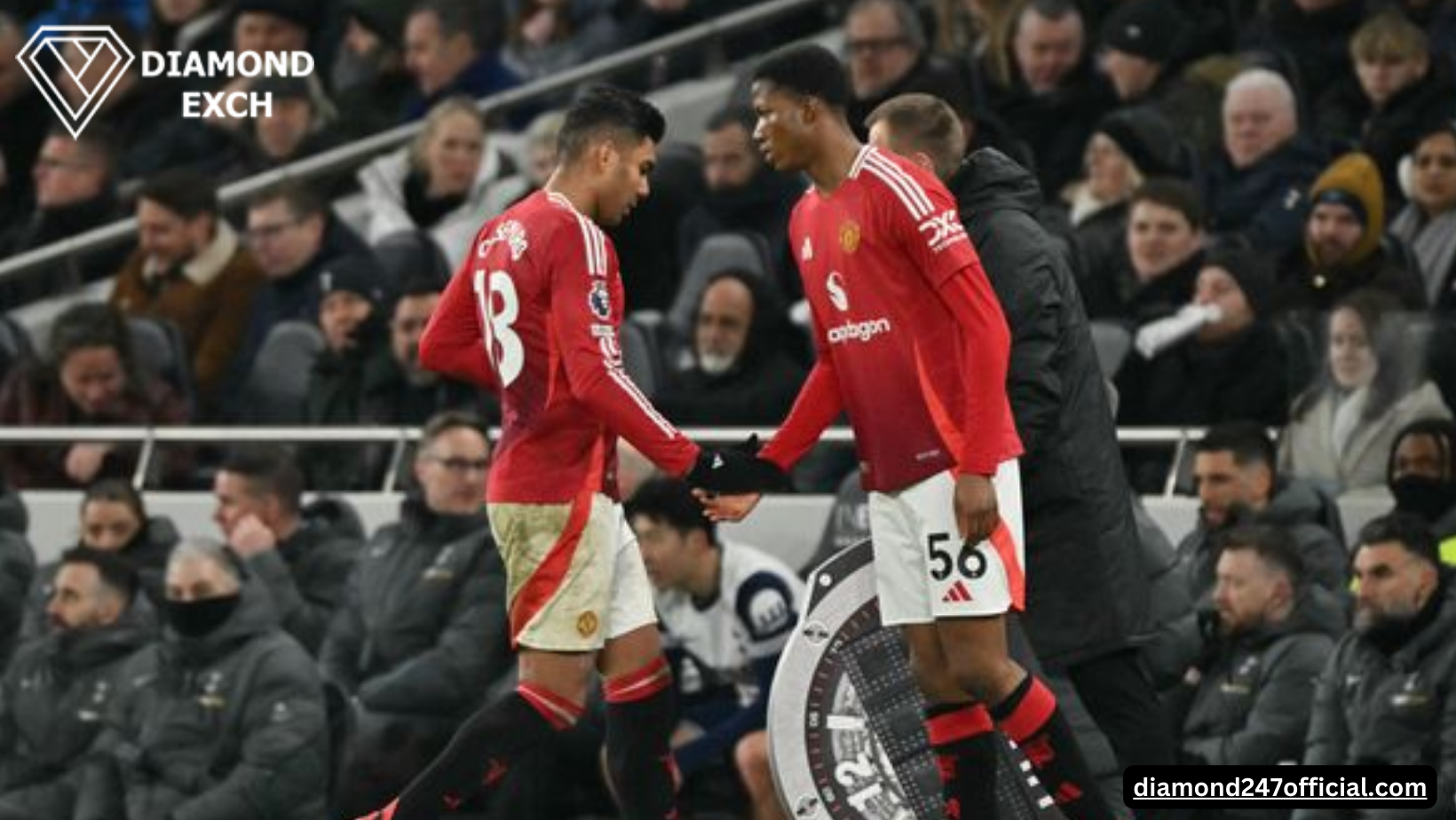In one of the more unconventional moves seen in recent football, Ruben Amorim, the manager of Manchester United, made a bold decision during his team’s clash with Tottenham Hotspur in the Premier League. This decision raised eyebrows across the football world, prompting questions about the reasons behind such a move and what it says about the tactical and managerial approach of the young Portuguese coach.
To understand why Amorim chose Obi as his one and only substitution in a competitive match, we need to look at various factors, ranging from tactical decisions to squad dynamics, and even the bigger picture of how Amorim is shaping Manchester United’s future.
A Tactical Gamble
Ruben Amorim is known for his astute tactical understanding of football, a trait that has served him well during his successful managerial career, particularly with Sporting CP. One of the key aspects of his style has been his ability to read games and make changes that enhance his team’s ability to control possession and dictate the tempo of the match.
An Online Betting ID is a secure, personalized account used to access and manage your betting activities on online gambling platforms.
Against Tottenham, Amorim faced a Spurs side under the management of Antonio Conte, a manager known for his solid defensive structure and fast counter-attacking football. With Tottenham holding a strong position in the league and boasting players like Harry Kane, Son Heung-min, and Dejan Kulusevski, Amorim knew that breaking down their defense would require precision and versatility.
In this context, it’s clear that Amorim saw Obi’s unique qualities as essential for unlocking Spurs’ defensive line. Obi, despite his youth, possesses a blend of agility, vision, and technical skill that makes him a versatile attacking option. With Manchester United needing a goal in the second half, Amorim decided that Obi’s dribbling ability and quick decision-making could be key in the tight spaces of Tottenham’s defensive block.
Rather than making multiple changes, which could potentially disrupt the balance of the team, Amorim opted for a calculated approach by giving Obi the responsibility to inject pace and creativity into the final third. By introducing him as the only substitute, Amorim signaled his trust in Obi’s ability to make a difference and potentially shift the game in United’s favor.
Building Trust in the Youth
One of the most striking elements of Amorim’s managerial philosophy has been his emphasis on youth development. At Sporting CP, he was instrumental in promoting several young talents into the first team, with players like Pedro Gonçalves and Nuno Mendes making significant strides under his tutelage. Amorim has continued this approach at Manchester United, integrating young players into the senior squad as part of a broader vision to build a sustainable and dynamic team.
Chido Obi represents a key part of this vision. Signed from the youth ranks, Obi’s development has been closely watched by Amorim, who sees in the Nigerian midfielder a player with immense potential. While it is rare for a player so young to be trusted with significant responsibility in a match as high-profile as the one against Tottenham, Amorim’s decision to give Obi a chance reflected his belief in the player’s readiness for the challenge.
Amorim’s willingness to turn to Obi is also a reflection of the growing trend in modern football, where managers are more inclined to give opportunities to young talents, even in high-pressure situations. This not only benefits the player’s development but also aligns with the broader strategic goals of nurturing homegrown or young talent to compete at the highest level.
Squad Depth and Injuries
United’s first-choice attackers, such as Bruno Fernandes and Marcus Rashford, were still recovering from knocks, and with players like Antony and Christian Eriksen sidelined, the attacking options were thin. In these circumstances, Amorim had to make the difficult choice of picking his most influential substitute – and that was Obi.
While other players might have had more experience, Amorim clearly saw Obi’s energy and adaptability as a necessary asset. The presence of more experienced attackers or midfielders on the bench might have provided a safer option, but Amorim’s bold move with Obi showed his willingness to take calculated risks in the pursuit of victory.
An Online Cricket ID is a unique account for accessing cricket betting platforms, enabling secure betting, tracking, and managing activities on various sites.
The Psychological Impact on the Team
Ruben Amorim’s decision to go with a single substitution was also likely influenced by psychological factors. In tight matches, where the scoreline is close and every minute counts, making a singular, purposeful change can have a more significant impact than multiple, perhaps less focused, substitutions.
By turning to Obi, Amorim may have been signaling to the team that they could rely on youthful energy and creativity in a moment of crisis. This not only boosted Obi’s confidence but also sent a message to the rest of the squad that the manager believed in his ability to make a difference.
Moreover, making a substitution in the second half can sometimes be an attempt to provide a psychological boost to a team that may be feeling fatigued or under pressure. By bringing in a fresh face with a new mindset, Amorim’s gamble on Obi was also a motivational strategy, aimed at invigorating the players and showing faith in the squad’s collective spirit.
The Future of Manchester United Under Amorim
Looking beyond the Tottenham match, Ruben Amorim’s decision to turn to Obi is a clear indication of his long-term approach to managing Manchester United. Amorim is in the early stages of what promises to be a transformative era at the club, and his focus on youth development, tactical flexibility, and squad cohesion will be vital as he seeks to restore United to its former glory.
By investing in young players like Obi, Amorim is positioning United to not only compete in the present but to thrive in the future. Obi’s potential represents a bright spot in the manager’s broader vision for the club, and his involvement in big matches – even as a lone substitute – will only serve to strengthen his development and experience.
Conclusion
Ruben Amorim’s decision to turn to Chido Obi as his only substitution against Tottenham was a calculated and bold move that showcased his tactical acumen, faith in youth, and awareness of his squad’s needs. By choosing Obi, he didn’t just make a substitution – he sent a message about his managerial philosophy and the importance of nurturing young talent at Manchester United.




